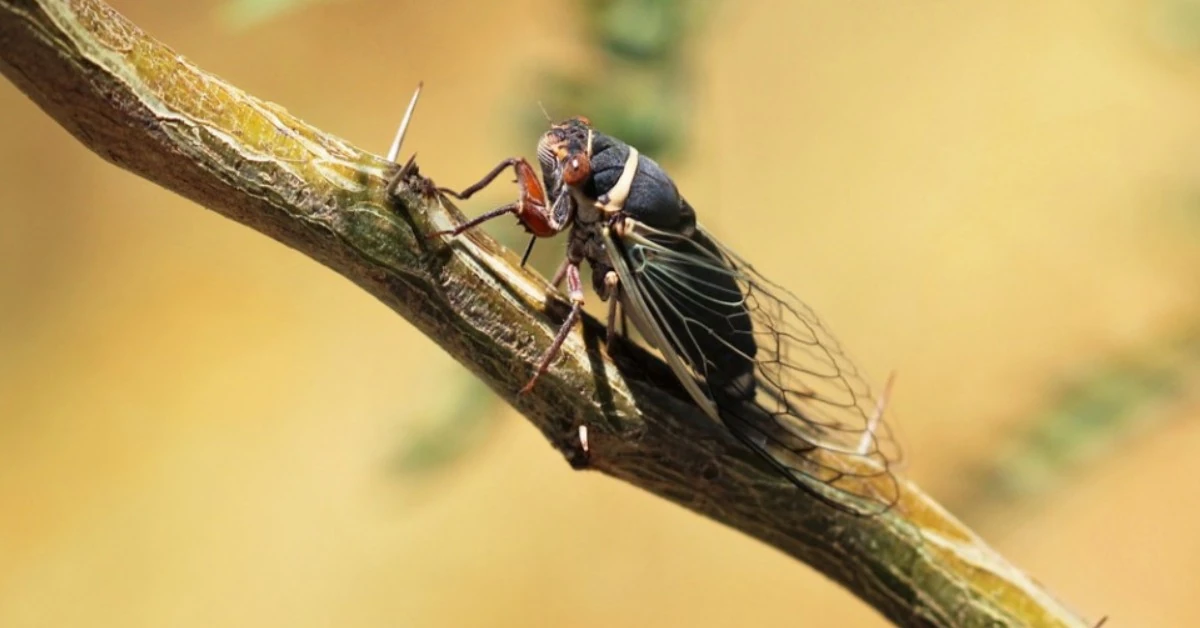Historic cicada invasion expected this spring across the Midwest and Southeast in rare event that last occurred in 1803

This spring, regions across the Midwest and Southeast are poised to experience an extraordinary natural event, with the simultaneous emergence of two periodical cicada broods. This rare phenomenon, last recorded in 1803, is anticipated to involve billions, possibly trillions, of cicadas.
Scientists are forecasting the emergence of an extraordinarily large number of cicadas this spring, with estimates suggesting billions, potentially trillions, could appear. This event is notable not only for its scale but also for the rare synchronization of two different cicada broods, Brood XIII and Brood XIX, which last occurred when Thomas Jefferson was president in 1803.
The expected cicada emergence will span large parts of the Midwest and Southeast, beginning in early May, as soil temperatures reach about 18 °C (64 °F). The emergence involves Brood XIII, on a 17-year cycle, predominantly in Illinois, Iowa, Wisconsin, and Indiana, and Brood XIX, which follows a 13-year cycle and has a broader geographic footprint that includes Illinois, Missouri, Louisiana, North Carolina, Virginia, and Maryland.
This year’s cicada phenomenon is particularly unique due to the geographical proximity and cycle synchronization of these two broods. They are set to overlap in a narrow band across central Illinois, creating a dense and vibrant hotspot of cicada activity.
Daniel Young, a professor of entomology at the University of Wisconsin-Madison, highlights the rarity of such an event, noting that the specific pairing of these broods’ cycles happens once every 221 years.
Cicadas are known for their loud mating songs, which can reach up to 100 decibels—similar to the sound of chainsaws in operation. Jim Louderman, a collections assistant at the Field Museum in Chicago, described the anticipated sound as nearly deafening, with the potential to dominate the auditory landscape.
While cicadas, particularly the periodical types that emerge in vast numbers, are generally not directly harmful to humans or homes, their presence can create several indirect issues.
In the realm of agriculture, cicadas pose a threat to young trees and shrubs. They do not eat the foliage but their egg-laying process, which involves making slits in the branches to deposit eggs, can damage and sometimes kill young twigs. This can be particularly problematic for orchards and nurseries, though the damage can be mitigated with protective netting or by delaying planting until the cicada wave has subsided.
In urban areas, the primary inconvenience posed by cicadas is the noise and the cleanup required after they die. The accumulation of dead cicadas can be substantial, leading to potential smell issues and a clean-up nuisance in public spaces such as streets, parks, and sidewalks. While they do not cause structural damage to buildings, their sheer numbers can be unsettling and require municipalities to allocate resources for cleanup.
Cicadas can present minor hazards to drivers. Their abundance might lead to visibility issues if large numbers splatter on windshields, and their bodies can make roads slippery where they are particularly dense. Additionally, some people might find the large swarms and the constant noise psychologically distressing or overwhelming, though they are completely harmless.
This natural phenomenon provides a significant source of food for a variety of predators, including birds and small mammals, and contributes to the nutrient cycle of ecosystems. Additionally, the decomposition of cicadas enriches the soil, enhancing forest fertility and supporting a new generation of plant growth.
References:
1 Cicadas incoming: Billions of insects poised to emerge in double-brood invasion – NBC News – April 11, 2024
2 Trillions of cicadas could emerge this spring – CBS – April 21, 2024
Featured image credit: Renee Grayson

Commenting rules and guidelines
We value the thoughts and opinions of our readers and welcome healthy discussions on our website. In order to maintain a respectful and positive community, we ask that all commenters follow these rules.